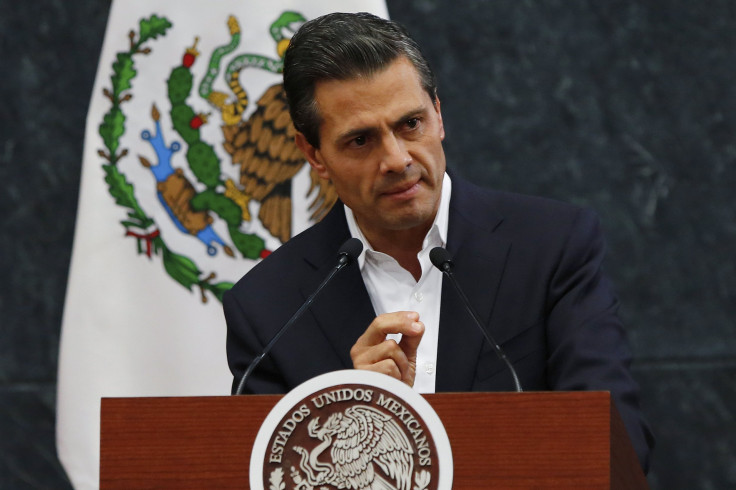Test For Peña Nieto As Mexicans Vote In Shadow Of Gang Murders

Mexican President Enrique Peña Nieto's party is expected to keep its slim working majority in the lower house of Congress in legislative elections on Sunday despite discontent about corruption, gang violence and lackluster economic growth.
Mexicans also began casting their ballots for nine state governorships and more than 1,000 state and municipal posts, with voting due to run until 2300 GMT and preliminary results expected around 0300 GMT on Monday.
At least seven candidates and nine campaign officials were murdered in campaigning soured by drug cartel intimidation and dissident teachers protesting against education reforms.
Fresh violence flared over the weekend, with 13 people killed on Saturday when gangs clashed near the resort city of Acapulco, but the incident appeared to be unrelated to the election.
Early on Sunday dozens of ballot boxes were burned by activists in Guerrero and Oaxaca states, two of Mexico's most restive. But all but a handful of polling stations across the country were operating normally, officials said.
After pushing through economic reforms early in his presidency, Peña Nieto has been hit by allegations of corruption and a failure to bring drug violence under control.
First, he was buffeted by criticism over the apparent massacre of 43 students last September by a drug gang working with local police. Then he had to contend with accusations of corruption following revelations that he, his wife and his finance minister had bought houses from government contractors.
There were 1,374 murders across Mexico in April, the highest monthly total in nearly a year, police data shows.
Still, although Peña Nieto's approval rating has plummeted, polls suggest his centrist Institutional Revolutionary Party (PRI) could hold the thin majority it has with its allies in the lower house, partly due to weakness and splits in the opposition.
The PRI, with its partners the Green Party and the smaller New Alliance party (PANAL) won 251 of 500 lower house seats in the 2012 elections with around 42 percent of the total vote. Polls suggest they will be close to that total again.
Having fulfilled the bulk of his main legislative pledges, including measures to end the state oil and gas monopoly and open up the telecoms sector to competition, Peña Nieto is not expected to rely on Congress as much in his last three years.
However, the government still has legislation pending, including bills aimed at encouraging investment in rural areas.
The reforms have yet to kick-start strong economic growth and the government recently cut its forecast for the third year running. Analysts predict growth of little more than 2.5 percent in 2015.
But much of the focus is on southwestern Mexico, which has been blighted by political murders. In addition, militant teachers are threatening to sabotage the vote if Peña Nieto does not scrap performance evaluations which are at the heart of his education reform.
Thousands of soldiers and federal police were sent to the most troubled states at the weekend to safeguard the vote.
(Additional reporting by Liz Diaz, David Alire Garcia and Gabriel Stargardter; Editing by Simon Gardner and Mark Trevelyan)
© Copyright Thomson Reuters 2024. All rights reserved.











